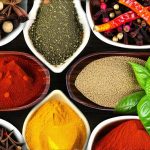The intricate relationship between food and our digestive system is often underestimated. While many focus on macronutrients and overall diet, the subtle yet powerful influence of spices frequently goes unnoticed. Spices aren’t merely flavour enhancers; they contain bioactive compounds that can significantly impact gut health – positively or negatively depending on the spice itself, individual sensitivities, and how it’s used. Understanding these effects is crucial for anyone seeking to optimize their digestive wellbeing and avoid discomfort. This article will delve into how specific spices interact with our stomachs, exploring both their potential benefits and risks, all while emphasizing a cautious and informed approach to incorporating them into your diet.
Our stomachs are remarkably complex ecosystems, housing trillions of microorganisms that play vital roles in digestion, immunity, and even mental health. The sensitivity of this ecosystem varies greatly from person to person. What soothes one individual’s stomach can cause distress for another. Factors like pre-existing conditions (such as Irritable Bowel Syndrome or acid reflux, dietary habits, stress levels, and genetic predispositions all contribute to these variations. Therefore, it’s not enough to simply know that a spice might be beneficial; you must consider your own unique physiological makeup and how your body responds to it. This is why paying attention to personal reactions and potentially consulting with a healthcare professional are important aspects of incorporating spices into your diet for digestive health. It’s helpful to understand how your gut issues might impact your spice tolerance, too.
The Soothing Side: Spices That Can Aid Digestion
Certain spices have been traditionally used for centuries to alleviate digestive issues, and modern research is beginning to validate these practices. Ginger, for example, contains gingerol, a compound known for its anti-inflammatory properties which can help reduce nausea and vomiting. Turmeric, with its active component curcumin, also boasts strong anti-inflammatory effects and may aid in reducing symptoms of bloating and indigestion. Cinnamon, often enjoyed in desserts or beverages, isn’t just delicious; it possesses carminative qualities that can help reduce gas and bloating by encouraging digestive movement. These spices aren’t quick fixes for serious conditions but rather supportive additions to a healthy lifestyle.
The benefits extend beyond simply alleviating symptoms. Some spices actively promote better digestion. Cumin, widely used in Indian cuisine, stimulates the secretion of pancreatic enzymes – essential for breaking down food efficiently. Cardamom, known for its aromatic flavour, aids in reducing stomach upset and improving gut motility. Fennel seeds have long been chewed after meals to prevent bloating and gas due to their ability to relax gastrointestinal muscles. Importantly, these spices often work synergistically with other dietary components; adding a pinch of ginger to your tea or cumin to your lentil soup can subtly enhance the digestive process. Being able to accurately monitor how well your stomach processes food will help you understand what works best for you.
The key is moderation and mindful consumption. While beneficial in small amounts, excessive intake of even soothing spices can sometimes lead to unwanted effects. For instance, high doses of cinnamon might irritate sensitive stomachs due to its coumarin content. Therefore, integrating these spices into your diet should be a gradual process, observing how your body reacts and adjusting accordingly. Remember that spice tolerance is highly individual; there’s no one-size-fits-all approach.
Spices & Gut Microbiome Health
The gut microbiome – the community of bacteria residing in our digestive tract – is increasingly recognized as playing a central role in overall health. Certain spices can positively influence this microbial ecosystem, promoting a more diverse and balanced gut flora. Research suggests that cinnamon, for example, may help modulate the composition of gut bacteria, potentially increasing beneficial species while reducing harmful ones. This modulation isn’t about eradicating all “bad” bacteria; it’s about fostering a harmonious balance where beneficial microbes thrive.
- A healthy microbiome is linked to improved digestion
- Enhanced immune function
- Reduced inflammation
Spices like cloves and nutmeg contain compounds that exhibit antimicrobial properties, which can help control the growth of potentially pathogenic bacteria in the gut. However, this isn’t necessarily about killing off all bacteria; it’s more about creating an environment where beneficial microbes have a competitive advantage. The delicate balance is crucial, as overly aggressive antimicrobial action could disrupt the entire ecosystem and lead to further imbalances.
It’s important to remember that dietary fibre remains the cornerstone of gut microbiome health. Spices should be viewed as supportive agents rather than replacements for a fibre-rich diet. Incorporating spices alongside foods like fruits, vegetables, and whole grains creates a synergistic effect that maximizes their benefits. Furthermore, fermented foods (like yogurt or kimchi) also contribute significantly to a healthy microbiome, offering a complementary approach to digestive wellness. Can certain spices influence bloating as well?
Ginger & Nausea Relief
Ginger’s reputation as an anti-nausea remedy is well-deserved, supported by both traditional medicine and scientific studies. The gingerols present in fresh ginger, and shogaols formed during drying or cooking, interact with the gastrointestinal system to accelerate gastric emptying – meaning food moves through the stomach faster. This reduces feelings of fullness and bloating often associated with nausea. Additionally, ginger can help block serotonin receptors in the gut, which are involved in triggering vomiting reflexes.
- Ginger is effective for motion sickness
- Morning sickness during pregnancy
- Chemotherapy induced nausea
However, it’s crucial to note that while generally safe, ginger isn’t a universal solution. For some individuals with sensitive stomachs, even small amounts of ginger can cause heartburn or discomfort. The form of ginger also matters: fresh ginger tends to be milder than dried ginger powder, and ginger ale often contains high levels of sugar which could exacerbate digestive issues. A simple way to utilize ginger for nausea relief is to sip on a weak ginger tea made from freshly grated ginger root.
If experiencing persistent or severe nausea, it’s essential to consult with a healthcare professional to rule out underlying medical conditions and determine the appropriate course of treatment. Ginger should be considered as a supportive measure alongside conventional medical care, not as a replacement for it. How acid affects your body can also contribute to nausea.
Turmeric & Inflammation Reduction
Turmeric, celebrated in Ayurvedic medicine for centuries, has garnered significant attention due to its potent anti-inflammatory properties. Curcumin, the primary bioactive compound in turmeric, inhibits several molecules known to play roles in inflammation within the digestive tract. This can be particularly beneficial for individuals suffering from inflammatory bowel diseases (IBD) like Crohn’s disease or ulcerative colitis, although it’s essential to understand that turmeric isn’t a cure and should always be discussed with your doctor as part of a broader treatment plan.
The bioavailability of curcumin is notoriously low – meaning the body struggles to absorb it effectively on its own. Combining turmeric with piperine, found in black pepper, significantly enhances absorption by inhibiting enzymes that would otherwise break down curcumin. This explains why many traditional recipes incorporate both spices together. Furthermore, consuming turmeric with healthy fats also improves bioavailability.
It’s important to note that high doses of turmeric can sometimes cause digestive upset in some individuals, particularly those prone to diarrhea. Start with small amounts and gradually increase if tolerated. Turmeric supplements are available, but it’s often preferable to obtain curcumin through dietary sources whenever possible – incorporating turmeric into curries, soups, or smoothies offers a more holistic approach to health.
The Cautionary Side: Spices That May Trigger Discomfort
While many spices offer digestive benefits, others can exacerbate certain conditions or cause discomfort for sensitive individuals. Chili peppers, with their capsaicin content, are a prime example. Capsaicin stimulates the release of endorphins and creates a warming sensation, but it can also irritate the stomach lining, leading to heartburn, acid reflux, and even diarrhea in susceptible individuals. Similarly, black pepper, while commonly used as a seasoning, contains piperine, which can stimulate gastric acid production and worsen symptoms for those with GERD (Gastroesophageal Reflux Disease).
Mint, often touted for its soothing properties, can paradoxically trigger heartburn in some people. The muscle-relaxing effects of mint can inadvertently relax the lower esophageal sphincter – allowing stomach acid to flow back into the esophagus. Garlic and onions, while flavourful additions to many dishes, contain fructans – a type of carbohydrate that can be poorly absorbed by the gut, leading to bloating, gas, and abdominal pain in individuals with IBS or fructose malabsorption. These aren’t reasons to eliminate these spices entirely but rather to exercise caution and pay attention to your body’s signals.
Ultimately, recognizing individual sensitivities is paramount. Keeping a food diary – tracking what you eat, how you feel, and any digestive symptoms that arise – can help identify trigger spices and patterns. This allows for informed dietary adjustments and minimizes discomfort. Remember that spice tolerance isn’t static; it can change over time due to factors like stress levels, overall health, and changes in gut microbiome composition. How to figure out your gut issues can help you tailor a diet that’s right for you. Also consider monitoring how well your stomach processes food. Finally, remember how alcohol-free drinks can impact digestion too.


















